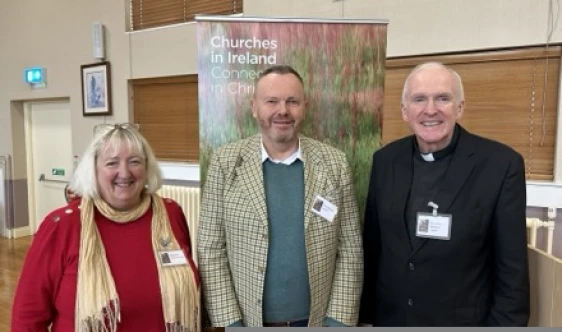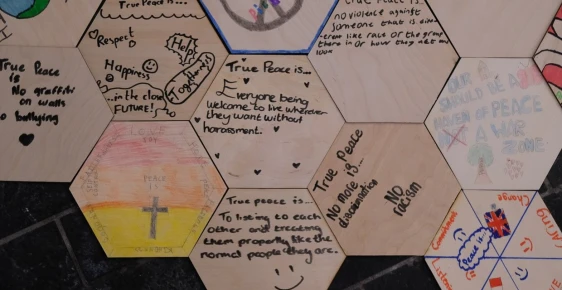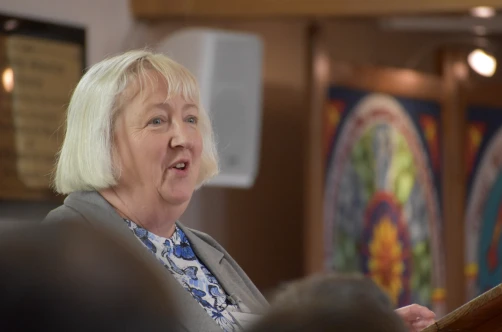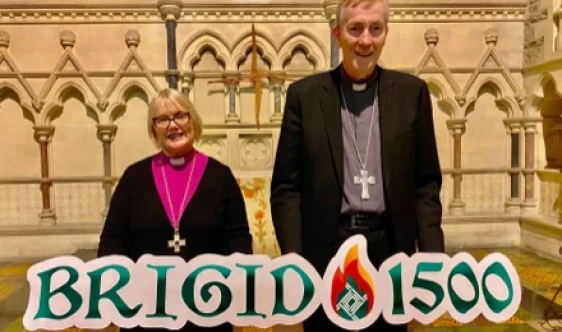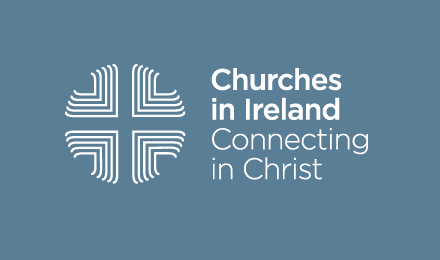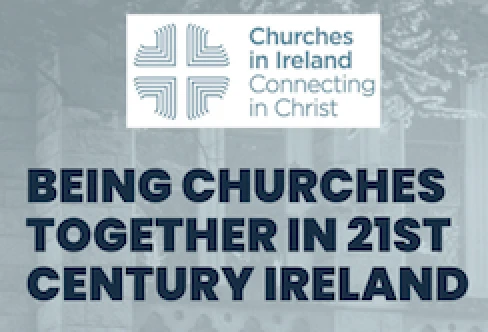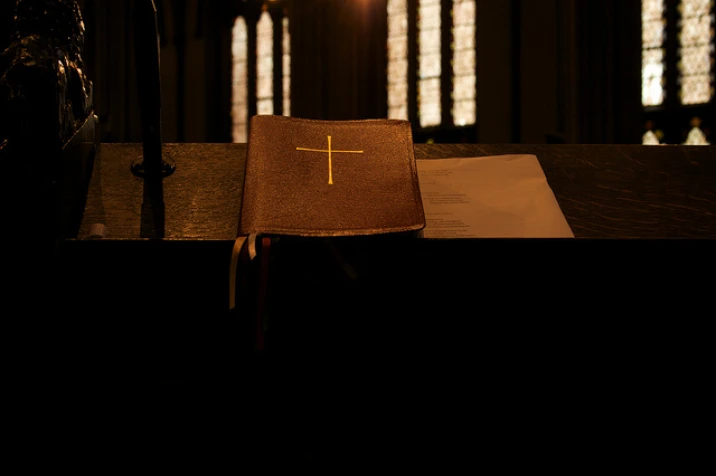
The following is an address delivered by Rev Dr Norman Hamilton at the Ballymena Church Members’ Forum AGM – West Church – on 18th September 2017 as part of Community Relations and Cultural Awareness Week.
1. let me start by saying the obvious … thanks! And for the opportunity to reflect with you as your chair has asked – on the Council’s theme of Shared Space, Safe Place …
2. This is now an even more demanding subject than it was a few years ago … you won’t need me to tell you that as a community we are now more polarised than we have been for some time … so I want to scope some of the wider context as I see it, and then come to a quite specific, but quite demanding suggestion for you as the church members’ forum here in Ballymena – not from any sense of having figured this all out myself – but because I really do think that the churches can and should have a very significant voice in this community – but more on that later … So let me start with some wider reflections …
3. The council’s theme of Shared Space Safe Place is self evidently a highly desirable place to get to. But it is not self generating. It is quite possible for people to feel safe, but NOT be in shared space, nor even wish to be in a shared space. You only have to look at the fact that most of our housing in Nl is divided along tribal lines – especially social housing, and most of our children are educated along religiously divided lines. People can often feel safe – or safer – when they are separated, than when they are sharing and together … not always, but housing and education are very formative and very important elements of life for us all. We all want safe space, and most can have it – but that does not imply at all a commitment to shared space.
4. Shared Space and Safe Place implies, amongst other things, that reconciliation can actually happen in this deeply divided society. Unless progress is made on this, there will be little long term substance to those words – Shared Space, Safe Place. So I want to spend a few minutes on this anguished issue of reconciliation. I think there is general agreement that reconciliation in our land is almost off the agenda of our political leaders, who of course have been put there by the votes of ordinary people like you and me. Voters don’t seem terribly motivated to vote in ways that promote shared community fife. This has caused me to think things through from a different angle, and as a result of that, I come to the conclusion that the public discussion on reconciliation needs to be substantially reframed and reworked, and I would like to share with you some of my thinking on this in the next few minutes … (open to Qs afterwards!) My comments are born out of being both an ordinary practitioner, an ordinary Presbyterian minister, and an ordinary Christian pastor who has spent 25 years living and working in this field. I have also had the privilege of wider experience, and for whom the ongoing challenge of embedding reconciliation in our society is a very real and ongoing passion. I come at this subject from ‘the street’ as it were.
5. The events of past months have taken the need for civic reconciliation to a completely new level. Events have reframed it in a very public way, for no longer can it be largely confined to community relations work or public policy. We now have the obvious need for reconciliation to be put at the heart of restoring government. At the moment that looks like a forlorn hope.
6. I find it striking that the language and tone of public and political discourse in recent times has been that of aggression, disillusionment, despair, scandal, horse trading, blame, counter blame, and the increasing likelihood – as the Secretary of State put it last week – of a “glide path” towards greater UK government intervention if a deal could not be struck by the parties in the next few weeks. We are talking of direct rule in some form.
7. Maybe I have missed it, but I have heard little or nothing about the common good, about trusted relationships, consensus or generosity of spirit. No mention of Shared Space, Safe Place anywhere in sight. That is deeply worrying – even if we accept that there is a measure of ‘rough and tumble’ in our particular brand of adversarial politics.
8. So what might ‘reconciliation reframed’ look like? Obviously I don’t have all the answers … indeed I am very conscious that my contribution may be very small, but a million small steps, as well as few big ones, could take us a long way.
9. The first thing that needs to be reframed is the language of public debate, both in politics and in the media. In recent times we have heard language from too many of our leaders that, quite frankly, is atrocious. I fail to see how the building of shared space or a united community is helped by language that is abusive, demeaning and sometimes downright vulgar. But equally, silence has not always been golden. There have been times when sections of wider society should have spoken, but did not do so – and I do include those of us in the faith sector in that observation. Silence creates a vacuum which can be filled with obnoxious noise rather than wisdom.
10. Reframing the language is easier said than done, for words betray underlying attitudes. And in a society that has been shaped by war and aggression, changing aggressive attitudes will be a long term process. We now seem to have aggression built into the DNA of our society, and taking it out will not be easy. To get there, we need a new quality of political, civic, and Christian leadership that emphasises generosity of spirit as well as justice; that seeks the flowering of positive peace as well as valuing the need for truth and transparency; that sees leadership as a precious gift and privilege to be well stewarded, and not squandered.
11. I want to suggest that when the term ‘reconciliation’ is used in politics or community relations work, it should be explicitly and consistently described as ‘civic reconciliation’. This will distinguish it from what might be called ‘person to person’ reconciliation, where the primary – or even the main – emphasis is on the restoring of fractured relationships rather than on developing a programme, a policy, or an initiative.
12. Let me tease this out a bit more … Civic reconciliation can be worked out in several ways …
13. Firstly – in ‘Political’ reconciliation – where elected leaders move to set the past aside in order to address either a new common threat or a new common opportunity. For example – the much improved relationships between the United Kingdom and the Republic of Ireland. Similarly between the USA and Japan as shown by the visit there of President Obama; and of course between the former World War 2 enemies of France and Germany as they have worked together to shape the European Union. Key to this happening, and being accepted, is that a new generation of leaders emerges, who have no direct involvement in, or direct culpability for, past horrors. Conceptually, they cannot really apologise for what they did not do. Politically, they cannot disown their past either. However, they see current needs and opportunities as the vehicle to bring them together in common cause – with the past simply sidelined – perhaps permanently.
14. That new generation of eJected leaders has not emerged here yet. But it will, and they may well be inclined – or even compelled – to go down this route of ‘political’ reconciliation because of the circumstances in which they wiU find themselves.
15. Secondly, civic reconciliation can, and is, worked out in ‘Community relations’ activities, where people from divided communities meet each other in order to build a better future together. They discuss their differences, but manage to reach a position where they can work together for their shared common good, without denying the reality of difference and pain. They usually retain their own identity and re–tell their own story. Inter church forums such as this one are often part of this type of work, alongside a multitude of community relations and community development groups.
16. These two approaches do not generally place a high degree of emphasis on agreeing a common story about the past, nor see a need to apologise or offer restitution for any wrong done (even if it is acknowledged). Yet, while this is happening, individuals and even some communities may well feel marginalised, and their sense of injustice and hurt increases. This was put to me graphically by one community leader who said .. Norman, reconciliation is not on our radar – and then he added – nor will it ever be. No–one should try to force person to person reconciliation on him or on anyone else. Shared Space, Safe Place is a place he and his colleagues simply cannot go for the pain is too deep. Yet, action is still needed to try to ensure that there is a worthwhile future for our children, and that they do not become the new long term carriers of hurt and division. So it is very important to reframe the language we use so that these differing understandings and content of reconciliation are clear all the time.
17. I am suggesting this evening that it is much too easy to put civic reconciliation in a silo, in the hope or expectation that it will grow of its own accord, nurtured by those who are enthusiastic about it. This will simply not happen. Back in 2004, Brandon Hamber and Grainne Kelly spoke in what was, and still is, a seminal paper on reconciliation, of the need for ‘Significant cultural and attitudinal change’ … and I have already commented on that. But they went further, and called for ‘substantial social, economic and political change: where the social, economic and political structures which gave rise to the conflict and estrangement are identified, reconstructed or addressed, and transformed.’
18. And it is this that brings me to my core suggestion for the church members’ forum here … and let me say at the outset, that if the suggestion I am about to make is one that you would be open to following through on, I would regard it as privilege to try to help it come to pass. I am NOT standing aside from the implications of what I am saying.
19. Historically I think it fair to say that churches have separated reconciliation and the concepts of Shared Space, Safe Place from wider social and economic issues. I am now convinced that this has been a significant weakness in the way we have gone about our inter church work and inter church discussions. How can we expect our town to be a shared space and a safe space for all if we are unconcerned about issues of social justice, welfare dependency, drug and people trafficking, mental health and other issues that are already well under way as austerity bites ever more deeply. Shared Space, Safe Place means little to ordinary people if every day is dominated by a struggle to even survive. And let it be said that if you are well off, you can readily insulate yourself in safe places where it really doesn’t matter if it is shared or not.
20. On the basis of Hamber and Kelly’s analysis, and bearing in mind the realities of life on the streets of Ballymena, I would like to make the suggestion that this forum sponsors a series of public discussions in the first half of next year on the theme of making Ballymena better … I am not suggesting that as the title merely the theme. How might education develop in the next ten years to make Ballymena better? How might business life develop in the next ten years to make Ballymena better? How might policing develop in the next ten years to make Ballymena better? How might the support and provision for the young people of the area develop in the next ten years to make Ballymena better? How might relationships with those from other countries develop in the next ten years to make Ballymena better? And we could go on and on … but that wilt do for the moment!
21. The churches are uniquely placed to host and sponsor such discussions, because we are not attached to any political party, nor do we have any motivation other than what the prophet Jeremiah said to his people all those years ago … (ch 29.7 –8) Seek the peace and prosperity of the city to which I have called you into exile. Pray to the LORD for it, because if it prospers, you too will prosper.” This necessarily involved them being willing to share the space of the city with those who had so seriously maltreated them, and to do so in a way and with an attitude that was a blessing to their oppressors. Add to this the injunction of Jesus himself in Matthew’s gospel 5.6 – Blessed are those who hunger and thirst for righteousness, for they will be filled. Let’s be unambiguously clear on this … righteousness in Ballymena matters – a lot…
22. From a Christian and Biblical perspective, Shared Space, Safe Place is an entirely proper theme that we can readily embrace. My final word to you is this … if we in the churches don’t play our part in making it a reality, why should we expect others to do so?
23. Thank you so much for the opportunity to be with you this evening.
(Rev Dr) Norman Hamilton 118 September 2011
Tel: 07114 218483/ Email: norman.hamilton@btintemet.com
